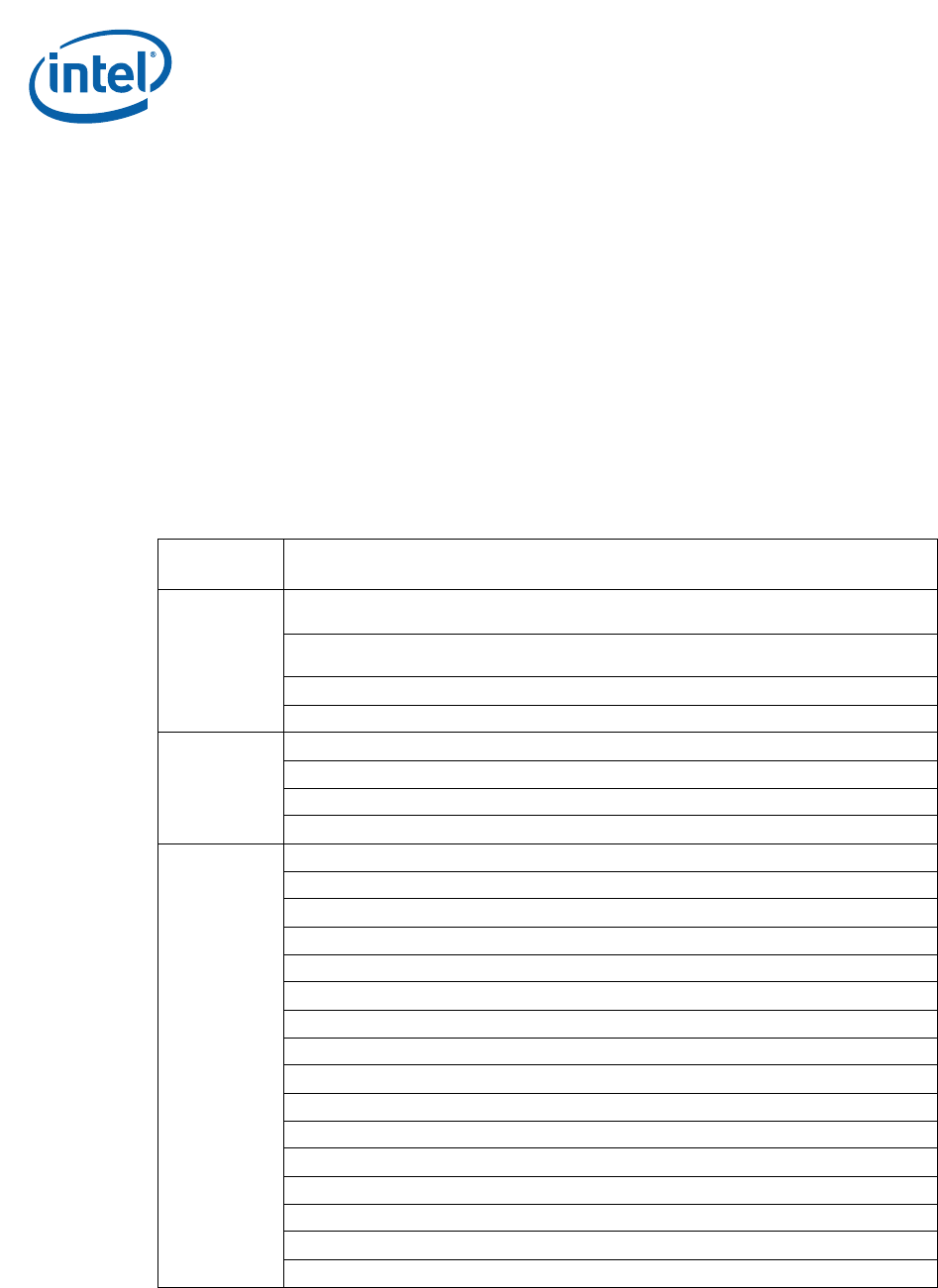
Intel
®
IXP42X product line and IXC1100 control plane processors—Internal Bus Performance
Monitoring Unit (IBPMU)
Intel
®
IXP42X Product Line of Network Processors and IXC1100 Control Plane Processor
DM September 2006
374 Order Number: 252480-006US
The programmable event counters (PEC) and the previous master and slave register
(PMSR) can be used for easy collection of the gathered statistical information.
The programmable event counters can be read periodically or when an interrupt occurs
to the Intel
®
IXP42X product line and IXC1100 control plane processors’ Interrupt
Controller. An interrupt will occur when any of the programmable event counters roll
over their maximum count value.
Writing logic 1 to the PMU status register bit — associated with the overflow condition
that caused the interrupt to occur — clears the interrupt. The information obtained by
reading the programmable event counters is entirely dependent on how the IBPMU is
initialized in the event select register.
The IBPMU can be configured to monitor occurrence events. An occurrence event
causes the programmable event counter to increase by one, each time the event
occurs. Table 140 lists the various occurrence events that can be monitored by the
IXP42X product line and IXC1100 control plane processors.
Table 140. Occurrence Events
Observed
Interface
Monitored Event
AHB_South
Number of grants to the Intel XScale processor, AHB_Bridge, APB bridge and
PCI_Controller.
Number of transactions initiated by the Intel XScale processor, AHB_Bridge, APB bridge and
PCI_Controller
Number of retries Signaled by the PCI_Controller and Expansion_bus to the initiators.
Number of split transfers claimed by the PCI_Controller and Expansion_Bus to the initiators
AHB_North
Number of grants to NPE A, NPE B and NPE C
Number of transactions initiated by NPE A, NPE B and NPE C.
Number of retries signaled by the AHB_Bridge to the initiators.
Number of split transfers claimed by the AHB_Bridge to the initiators
SDRAM
Number of SDR0 misses
Number of SDR1 misses
Number of SDR2 misses
Number of SDR3 misses
Number of SDR4 misses
Number of SDR5 misses
Number of SDR6 misses
Number of SDR7 misses
Number of SDR0 hits
Number of SDR1 hits
Number of SDR2 hits
Number of SDR3 hits
Number of SDR4 hits
Number of SDR5 hits
Number of SDR6 hits
Number of SDR7 hits


















